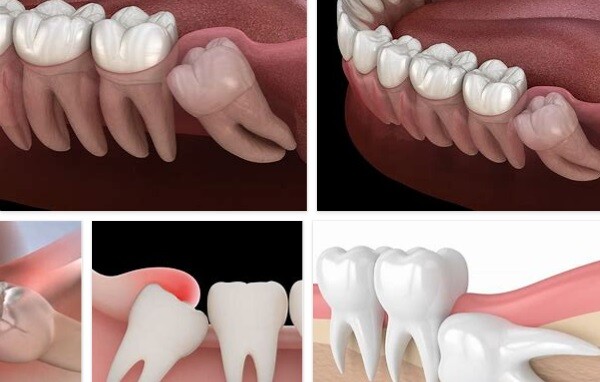Benefits of Wisdom Teeth Removal – What are the advantages?
Benefits of wisdom teeth removal are the topic of this article. There are some pros and cons to both procedures. Read on to find out the pros and cons of wisdom teeth removal and what they mean for your health. You may also be interested in the potential side effects of this procedure. There is a lot of confusion surrounding the benefits and risks of wisdom tooth extraction, so it’s best to get the facts before you choose this option. Here are some of the most important pros and cons of wisdom tooth extraction.
What are the advantages of removing wisdom teeth?
If you are young, it may be tempting to leave your wisdom teeth in place. However, the removal of these teeth can have adverse consequences. They can cause pain and sensitivity in the mouth and can even damage other teeth. Your dentist may recommend removing your wisdom teeth if they are likely to cause other problems. This procedure can also help if your molars are already damaged. Despite its negative effects, some people still prefer to have this procedure performed.
Other than alleviating the pain of impacted wisdom teeth, having your wisdom teeth removed can also help prevent complications like diabetes or a stroke. It may also be helpful to prevent cavities on your other teeth. Some people also choose wisdom teeth removal if they are asymptomatic and can be brushed. However, it’s important to remember that older patients generally recover slower and are at a higher risk of complications.
Can wisdom teeth removal improve health?
Can wisdom teeth removal improve health? Many people have heard of the benefits of wisdom tooth extraction, but are they really worth the procedure? In fact, some health benefits of wisdom teeth removal go far beyond the mouth. When a person develops a severe oral infection, it can spread throughout the body, potentially leading to life-threatening sepsis. Many health problems associated with gum disease can be linked to poor oral health, including pregnancy complications.
Inflammation of the gum tissue is one of the most common side effects of impacted wisdom teeth. This condition causes the gum tissue around the teeth to become swollen, creating a pocket where bacteria can grow and cause cavities. Infections can also form under the gums, affecting nerves and entering the blood stream. Inflammation can also lead to chronic bad breath and pain. Extraction is one way to avoid these complications and get back on track with your oral health.
What are the pros & cons of removing wisdom teeth?
Aside from the cosmetic benefits of having your wisdom teeth removed, there are several disadvantages of having them removed. While wisdom teeth do not pose a significant risk of dental disease, they can cause pain and push neighboring teeth out of alignment. In addition, they are prone to causing tooth decay and crowding. Additionally, their roots may interfere with dental work, which can make them painful and difficult to clean.
Although the benefits of having these teeth removed are obvious, there are many drawbacks, including a hefty price tag. While the risks are lower, patients may feel more comfortable with the procedure and avoid developing gum problems as they age. For example, 44% of wisdom teeth sprout at an angle. This can cause the roots to push into neighboring teeth. As a result, semi-impacted and impacted wisdom teeth can cause a crowding of surrounding teeth and require orthodontic treatment.
Wisdom teeth removal can alleviate pain and sensitivity in the mouth, prevent damage to other teeth, and prevent cavities on other teeth. It can also improve overall health by avoiding the negative effects of impacted wisdom teeth and preventing oral infections from spreading throughout the body.
Yes, wisdom teeth removal can improve health by preventing oral infections from spreading throughout the body and avoiding the negative effects of impacted wisdom teeth. It can also prevent complications like diabetes or a stroke.
The pros of removing wisdom teeth include alleviating pain and sensitivity, preventing damage to other teeth, preventing cavities on other teeth, and improving overall health. The cons of removing wisdom teeth include a hefty price tag, potential risks associated with the procedure, and the possibility of discomfort during recovery. Additionally, while wisdom teeth do not pose a significant risk of dental disease, they can cause pain and push neighboring teeth out of alignment.






